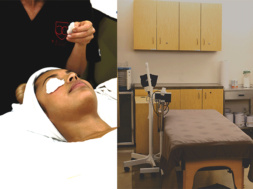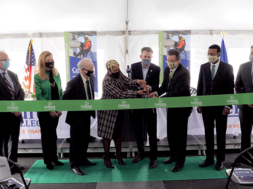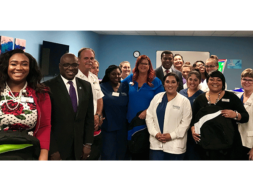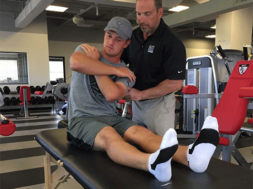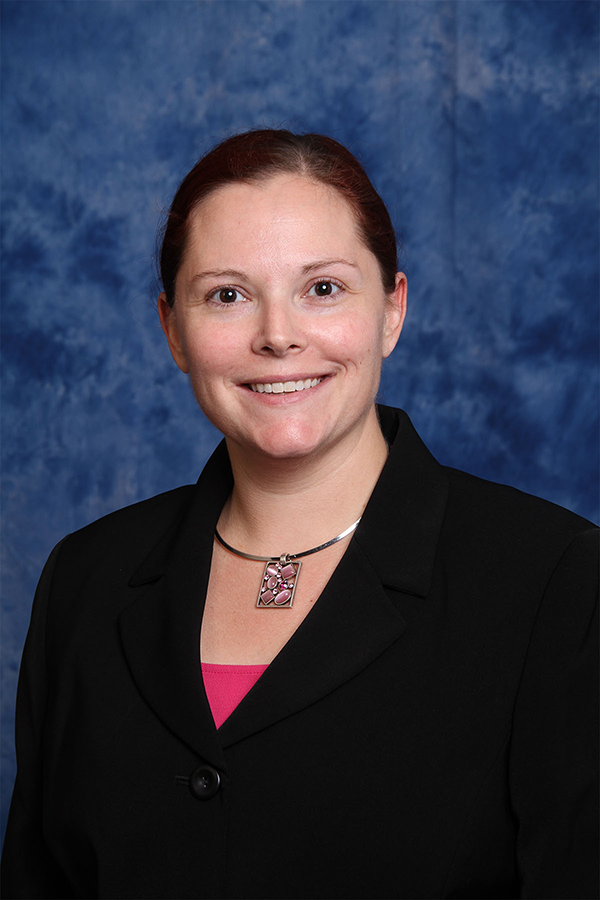
By Andrea Cohn, Librarian, Harrison College
OER at Harrison College
By now, everyone who works in education is probably at least somewhat familiar with the phrase Open Educational Resources (OER), but if you work in the proprietary college sector, you probably haven’t heard much about how they have been used in institutions like your own. In case you are not familiar, Open Education Resources have many different definitions, but mainly consist of material that is developed by educators and licensed through Creative Commons. They are distributed with the intent to share among the educational community in a sustainable, open manner. These are not just “web resources,” but more intentional, curated resources that typically exist in repositories, with a focus on a sharing community (Walsh, 2012). When Harrison College decided to embark on the journey of replacing costly textbooks in an introductory college success course, we scoured the literature to find examples of how other proprietary institutions had used OER in their courses, but could not find any instances of institutions like our own that were using these materials to help lower the costs of course materials for their students. After reading several case studies from small private colleges, community colleges, and larger universities, we were able to piece together a strategy and move forward with a successful implementation of the OER project.
I’m hoping by writing this article about our experiences with OER at Harrison College, other proprietary institutions will be able to benefit from our successes and what we learned along the way.
With the right expectations, strategy, and copyright considerations, OER can work at any proprietary institution.
Why OER?
First, it is important to briefly consider why we decided to use Open Educational Resources at Harrison College. We had been considering using them for over a year when we found out that we needed to redesign our Strategies for Success course that is mandatory for all incoming students. We needed to replace the costly text in the course, and had a limited time to do so. It was the perfect time to consider using OER, but not just because it could save money on a course that traditionally weighed heavily on materials cost. With OER, students get the benefit of embedded online content in Canvas, our Learning Management System (LMS). Additionally, many of the resources can be customized to include only the content that is relevant to the students, which makes it more engaging.
Finally, since the content is embedded in the online LMS course, it reduces the potential roadblock of the student not having the textbook on the first day of class.
As an additional bonus, learning how to navigate these online, embedded resources helps the student gain those coveted 21st century technology skills that employers are always seeking. All of these reasons contributed to our decision to move forward with the pilot.
The pilot
In September 2015, we began evaluating the possible OER textbooks available to replace the current Strategies for Success book that was being used. Finding a textbook replacement was really the key to being able to move forward. As a proprietary college, there were many copyright concerns to consider, and both librarians and in-house counsel worked together to make sure all legal concerns were addressed. After the textbook was identified, a committee of two librarians, a subject matter expert, one instructional developer, and two faculty members worked together to identify materials and redesign the course using a combination of OER, in-house created videos and content, and other material. We finalized the course at the end of December 2015.
What we learned about expectations
One of the major takeaways from this project was that implementing OER takes a lot of time. Even if our pilot seemed like we were moving pretty quickly, we had pulled together 6 people and had them working almost solely on this project. That is not our typical design scenario in which we have a team of three working part-time on a build. Furthermore, in a normal design, we would purchase a text with supplemental materials we could use. When using OER, we found that we had to search for the appropriate text, customize it, and then research, identify, or create our own supplemental resources that met our unique copyright demands. Finally, there was an additional step of making sure to create the proper citation for all of the resources we used. This all takes a lot of time not normally embedded into the design process. When you are starting from scratch with no textbook, you have to set expectations up front with your design team, and build in the appropriate time and training needed to meet your goals. We had to come to the realization that our definition of success was going to look different from other large-scale projects at other institutions, and that it was OK. In the end, we ended up needing to use a supplemental resource that cost a small fee, but all other resources were OER.
What we learned about strategy
Having the right team in place is essential to the success of any OER project. Librarians tend to have a great skillset for working with OER, especially since you will be dealing with copyright and research. Make sure to consider passionate faculty members and adjunct instructors in addition to subject matter experts when filling out your team.
We found that OER projects can get pretty intense as timelines get close, especially if you have to create or customize a lot of content, so make sure you have tech-savvy and engaged members who really buy in to the process.
Furthermore, choosing the right course to start out with is also important to make sure your OER venture goes smoothly. Most Open Educational Resources you will find are going to be written for General Education courses, so it makes sense to start with those courses first. Also, those will be the courses with the highest impact, since they reach the largest population of students. We chose to start small, with just one foundational course, but that one course impacted almost every student who comes to Harrison College.
Finally, make sure you think about the long-term maintenance and storage considerations when adapting OER into your courses. Since many OER and supplemental resources involve online content, how will you maintain the integrity of that content over time? Nobody wants to see broken links or outdated content, so making a plan for continued revision and oversight is imperative. Also, you will need to address storage concerns as well if you plan to edit and maintain master copies of OER texts. These are just some of the considerations to think about as you begin your project.
What we learned about copyright
Now we get to the elephant in the room – copyright. I suspect this is most likely what prevents many proprietary institutions from venturing in to the realm of Open Educational Resources. Indeed, it can be complicated, especially for institutions that use Instructional Developers to create course content, because they are not protected under the same Fair Use law as faculty. However, as long as your institution is diligent in following copyright compliance and providing citations, there should be many resources that are available in the OER community that can be used in proprietary college classrooms. Since most OER are under Creative Commons licensing, there are options, including the CC-By license, that allow for reuse of materials with just attribution. Furthermore, depending on the intent of use and whether a student will be charged for the material, you may be able to use other Creative Commons licenses as well. The bottom line is that you will need to make sure you have people on your team who are well-versed in copyright compliance and can help guide your decisions and vet your resources carefully. However, fear of copyright shouldn’t dissuade you from launching an OER project altogether.
What now?
So where are we now, almost a year after our pilot launch? We are still going strong with our efforts to include OER in our courses at Harrison College.
Since implementing the pilot in our Strategies for Success course in January 2016, the pass rates for students in all modalities have increased by 5 percent across the board, and retention for those students taking the course in the online format has increased by 10 percent.
Such initial success has encouraged us to ramp up our efforts in other courses as well. However, our expectation is not to simply replace all textbooks in every class immediately. Recently, we have used OER to replace the textbook and publisher software in the Computers and Office Automation course, and the initial launch of the course this Fall (2016) is going well. Our Instructional Developers continually work with our librarians to locate Open Educational Material to supplemental courses during the course design process, so it doesn’t have to be an “all-or-nothing” approach. As we continue our journey down the OER path, we hope that other proprietary institutions will join us in sharing what they are learning so that proprietary institutions can become a strong part of the OER community, and our students can benefit from the shared knowledge.
OER links
Here are just a few places to find Open Educational Resources if you are interested in getting started:
- OER Commons: https://www.oercommons.org/
- College Open Textbooks: http://www.collegeopentextbooks.org/
- Saylor.org Academy: http://www.saylor.org/
- OpenStax College: http://cnx.org/
References:
Walsh, B. (Producer). (2012) OER (Open educational resources) introduction II. Retrieved from https://www.youtube.com/watch?v=Yfl1B6Qmp5g&feature=youtu.be
ANDREA COHN is currently a librarian and member of the faculty at Harrison College’s Fort Wayne Campus. She has worked for Harrison College since 2009, serving in several different capacities, including Dean of Library Operations and Emerging Resources and Technologies Manager. Prior to coming to Harrison, Andrea worked as a photo librarian at The Journal Gazette in Fort Wayne, and as a cataloger at the Indiana Humanities Council in Indianapolis. She graduated from IUPUI in 2004 with her Master of Library Science, and holds a Bachelor of Arts in English from Indiana University-Purdue University, Fort Wayne.
Contact Information: Andrea Cohn // Librarian // Harrison College // 260-918-9216 // andrea.cohn@harrison.edu // Social Media: https://www.linkedin.com/in/andreacohn

